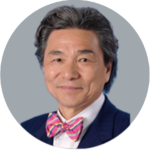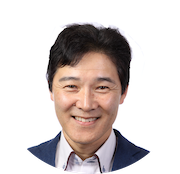LEADERSHIP BIOS

Lan Huang, Ph.D.
Dr. Huang brings over 15 years of entrepreneurial experience in the Chinese and U.S. biotechnology industries. In 2010, Dr. Huang founded Wanchun Biotech, the former holding company of BeyondSpring’s U.S. subsidiary. In 2007, Dr. Huang co-founded Wuxi MTLH Biotechnology Co. Ltd., where she served as CEO in 2010 and continues to hold a directorship. The rights related to the development and marketing of the peptide drug in China, which drug Dr. Huang designed while at Wuxi MTLH Biotechnology Co. Ltd., were sold to Shanghai Pharmaceutical Co., Ltd. in 2010. Additionally, in 2008, Dr. Huang co-founded Paramax International Inc., a CRO that conducts clinical trials for global biopharmaceutical and medical device companies. Paramax International Inc. was acquired by ReSearch Pharmaceutical Services, Inc. in 2009. Dr. Huang was trained at Memorial Sloan Kettering Cancer Center from 1998 to 2002, where her research in cancer signaling pathways involving p53 degradation was published in Science. Her translational research in cancer signaling pathways involving RAS was published in two Nature papers. She has invented and holds patents for a number of biotech products for oncology and dermatology indications.
Dr. Huang received her B.A., Magna Cum Laude and Phi Beta Kappa, from Lawrence University, where she served as a trustee from 2012 to 2015. She received her Ph.D. in chemistry from the University of California at Berkeley, where she won the international-level Women’s Opportunity Award given by Soroptimist International. She also studied at Fudan University in Shanghai, China.

Ning Zheng, Ph.D.
Dr. Zheng is a Professor of Pharmacology at the University of Washington School of Medicine and a Howard Hughes Medical Institute Investigator. He received his Ph.D. from the University of Texas Southwestern Medical Center and was trained as a Postdoctoral Fellow at the Memorial Sloan-Kettering Cancer Center. Research in Dr. Zheng’s group seeks to understand the intricate interactions and coordinated functions of proteins and signaling molecules found in all kingdoms of life. Using a structural biology approach, Dr. Zheng and his team conduct studies that span several interwoven research areas, including protein ubiquitination, transcription regulation, plant hormone signaling, and ion channel functions. In the past two decades, the Zheng lab has elucidated various regulatory mechanisms governing specific substrate recognition by ubiquitin ligases. He raised the concept of “molecular glue” for the first time based on his discovery of the mechanism of action of auxin, a master plant hormone targeting a ubiquitin ligase-substrate interface. The overarching goal of his studies is to apply the biological principles they learn from basic research to the development of novel therapeutics and the balancing of the planet’s ecological systems. Additional information on The Zheng Lab at UW can be found at https://depts.washington.edu/zhenglab/.

Michele Pagano, M.D.
Dr. Pagano is the chair of the Department of Biochemistry and Molecular Pharmacology and the May Ellen and Gerald Jay Ritter professor of Oncology at the New York University School of Medicine. Since 2008, he is also an investigator at the Howard Hughes Medical Institute. Dr. Pagano received his doctorate in Medicine and a specialty diploma in Molecular Endocrinology in 1990 from the University of Naples Federico II University in his native Napoli, Italy. He was subsequently a post-doctoral fellow at EMBL, Heidelberg, Germany from 1990 to 1992, and at Mitotix Inc., a biotech company that he cofounded and that pioneered the concept of CDK inhibitors as anti-cancer agents from 1992 to 1996. He joined the NYU School of Medicine in September 1996 and was tenured in 2003. Dr. Pagano has received many prestigious grants, including a Merit Award from the National Cancer Institute (2006-2017) and a NIGMS MIRA Award in recognition of his outstanding achievements in cell and cancer biology. Dr. Pagano has published more than 200 leading papers, has been issued 7 patents, and has been invited to present more than 180 seminars at conferences, universities, and research institutions in the U.S. and abroad. Dr. Pagano’s research focuses on the ubiquitylating enzymes that control cell proliferation and how deregulation of these machineries contribute to malignant transformation. His long-term goal is to help develop new anticancer therapies. In particular, his laboratory is working towards the identification of small molecule glues able to promote the proteolysis of untargetable oncoproteins. Additional information on The Pagano Laboratory can be found at https://paganolab.org.

Avram Hershko, M.D., Ph.D.
A winner of the Nobel Prize in Chemistry in 2004 and co-winner of the Lasker Award in 2000, Dr. Hershko was the first researcher to describe the ubiquitin system responsible for the regulated degradation of proteins within the cell. This discovery represented a breakthrough in research on cancer, degenerative diseases in the brain, and many other disorders. He is currently a Distinguished Professor in the Department of Biochemistry at Technion – Israel Institute of Technology in Haifa, Israel and has been an adjunct professor of Pathology at the NYU School of Medicine since 2002. Additional information on Dr. Hershko can be found at https://en.wikipedia.org/wiki/Avram_Hershko.

Dr. Hershko received his M.D. in 1965 and his Ph.D in 1969 from the Hebrew University-Hadassah Medical School, Jerusalem, Israel. He is currently a Distinguished Professor at the Rappaport Faculty of Medicine at the Technion in Haifa. Along with Aaron Ciechanover and Irwin Rose, he was awarded the 2004 Nobel Prize in Chemistry for the discovery of ubiquitin-mediated protein degradation. Through the research earning the Nobel Prize, the ubiquitin-proteasome pathway was demonstrated to have a critical role in maintaining the homeostasis of cells and to be involved in the development and progression of diseases such as cancer, muscular and neurological diseases, and immune and inflammatory responses. Importantly, Dr. Hershko also advised that the development of the proteasome inhibitor Velcade be turned towards cancer, where it was eventually approved as a treatment for Multiple Myeloma.

Dr. Zheng is a Professor of Pharmacology at the University of Washington School of Medicine. Ning Zheng seeks to understand the intricate interactions and coordinated functions of proteins and signaling molecules found in plants and animals, including humans. Using a structural biology approach, Zheng and his team conduct studies that span several interwoven research areas, including ubiquitination, transcription, plant biology, ion channels, circadian clocks, and drug discovery. Their overarching goal is to apply the underlying biological principles they learn to the development of novel therapeutics as well as to the planet’s ecological balance. Dr. Zheng pioneered the concept of Molecular Glue with his determination of the mechanism of action of the plant hormones auxin and jasmonate. Moreover, utilizing over 20 years’ experience discovering the structural biology of ubiquitin ligases, Ning demonstrated the potential to utilize high throughput screening of small molecule libraries to discover molecules that can induce productive protein-protein interaction between a ubiquitin ligase and a protein being targeted for degradation.

Dr. Pagano is the Chair of the Biochemistry and Molecular Pharmacology Department and the May Ellen and Gerald Jay Ritter Professor of Oncology at the New York University School of Medicine. He is also an Investigator with the Howard Hughes Medical Institute. Dr. Pagano studies the large family of human ubiquitin ligase enzymes, essential factors in the degradation of cellular regulatory proteins. His laboratory utilizes discovery-driven data analyses to explore new areas of research. As a result, he has expanded his work – initially focused on cell-cycle control – to encompass multiple aspects of cellular signaling involving ubiquitin ligase enzymes. Another major goal of his research team is to reveal key regulatory mechanisms underlying fundamental biological responses and behaviors for which dysregulation results in cancer. His long-term goal is to develop new anticancer therapies based on novel concepts of protein degradation. Dr. Pagano’s experience co-founding Mitotix Inc. and pioneering the concept of targeting CDK inhibitors for the treatment of cancer provide him with valuable insights into successful drug development out of basic research discoveries.

Dr. Tonra received his BS in Physics and PhD in Physiology and Biophysics from SUNY Stony Brook. Dr. Tonra has over 26 years experience discovering and translating pre-clinical assets to clinical development, and expanding the utility of clinically advanced assets, in leading innovative biotech companies including Regeneron Pharmaceuticals, Millennium Pharmaceuticals, Kadmon Holdings and ImClone Systems/Eli Lilly. In the nearly 10 years Dr. Tonra spent at ImClone, his efforts were critical in the validation and IND filing for 10 preclinical assets, including Cyramza®, Portrazza®, and Lartruvo®. Dr. Tonra was a key contributor at Kadmon towards the eventual approval for marketing of belumosudil for the treatment of chronic graft versus host disease. At BeyondSpring Dr. Tonra was part of the team that discovered plinabulin’s differentiated mechanism of action and was instrumental in expanding plinabulin’s clinical indications through outsourced nonclinical research and collaborations with leading academic experts. More recently, prior to joining SEED as President and CSO, Dr. Tonra lead the preclinical discovery and advancement of broad-spectrum antiviral drugs at Evrys Bio.

Dr. Huang is Founder, Chairman and CEO of BeyondSpring and SEED Therapeutics. Dr. Huang received scientific training at Memorial Sloan Kettering Cancer Center, where her breakthrough research in solving the first E2-E3 ubiquitin ligase structure involving P53 degradation was published in Science. She received her PhD in Chemistry from the University of California at Berkeley, where she won the graduating PhD woman award from Soroptimist International. Her translational research in cancer signaling pathways involving Ras was published in two Nature papers. Dr. Huang has more than a decade of entrepreneurial experience in the Chinese and U.S. biotechnology industry and invented and holds patents for a number of biotech products for oncology and dermatology indications. Prior to founding BeyondSpring and its pipeline of preclinical to Phase 3 assets, Dr. Huang co-founded WuXi MTLH Biotechnology Co. Ltd., and designed cancer peptide drug whose China rights were acquired in 2010 by Shanghai Pharmaceutical Group, one of the top three pharmaceutical companies in China. She also co-founded Paramax International, a clinical CRO company in China, sold to RPS (a global CRO), then to Warburg Pincus in 2011. At BeyondSpring, Dr. Huang has taken the company public (NASDAQ:BYSI) and advanced the main small molecule asset, plinabulin, through NDA filing in the US and China.

Linus S Lin, Ph.D.
Dr. Lin is the Managing Director of Lilly Chorus, a full-service, autonomous R&D unit within Lilly that specializes in lean to clinical Proof of Concept (POC). Previously at Lilly, he held the positions of Site Head & General Manager, Lilly China Research and Development Center (LCRDC), a diabetes focused R&D center based in Shanghai, and Head, Lilly China Innovation Partnerships (LCIP), an externally focused organization to engage biotech and academic collaborators in China. Prior to Lilly, Dr. Lin led the Chemistry Service Unit at WuXi AppTec, after leading multiple drug discovery teams at Merck. Dr. Lin received his BS in Chemistry from Peking University and obtained his PhD in Organic Chemistry at the University of Wisconsin-Madison. He completed his NIH postdoctoral Fellowship with Nobel laureate Prof. E.J. Corey at Harvard University.

Ko-Yung Tung, Esq
Mr. Tung has served as a director and strategic advisor to leading international corporations and advisory councils, including Eisai Co., Ltd., Hawaiian Airlines, and Kajima Corporation. Mr. Tung formerly served as Senior Vice President and General Counsel of the World Bank, Secretary General of the International Centre of the Settlement of Investment Disputes (ICSID), senior partner of O’Melveny & Myers, and Senior Counsellor at Morrison & Foerster.
Mr. Tung currently serves as a board member of the Global Health Innovative Technology Fund (GHIT) in Japan with funding from the Gates Foundation, the Japanese government, Wellcome Trust, and large Japan pharmaceutical firms, including Takeda, Astellas, and Eisai. While at the World Bank, Mr. Tung provided legal advice in the establishment of the Global Fund for AIDS, Malaria and Tuberculosis. He has been at the lead of cross-border public policy, including as a member of the Trilateral Commission, U.S. Presidential Commission on United States Pacific Trade and Investment Policy, and Chairman of the Board of Governors of the East-West Center. He is also a member of the Council on Foreign Relations and has been associated with the American Society of International Law, International Bar Association, and Bar of the City of New York. As a distinguished scholar, Mr. Tung has taught at Harvard Law School, Yale Law School, and NYU Law School for many years. Mr. Tung received his education at Harvard College (B.A. in physics, magna cum laude), Harvard Law School (J.D.), and University of Tokyo, Faculty of Law.

Jackson Tai
Mr. Tai has served as Non-Executive Director at several leading global companies, including Eli Lilly, HSBC (where he was Chairman of the Risk Committee), and Mastercard. He continues to serve as Board Member for Hong Kong Exchange listed Wuxi Biologics (where he is Chairman of the Audit Committee). He formerly served as Non-Executive Director for a number of companies, including Canada Pension Plan Investment Board, The Bank of China, Singapore Airlines, NYSE Euronext, and Royal Philips.
Mr. Tai also serves as a Board member of the Metropolitan Opera, the New York Philharmonic, Rensselaer Polytechnic Institute, as well as a member of the Harvard Business School Asia-Pacific Advisory Board and the Council on Foreign Relations. Mr. Tai obtained his Master of Business Administration degree from Harvard University in 1974 and Bachelor of Science degree from Rensselaer Polytechnic Institute in 1972.

Yoshiharu Mizui, Ph. D.
Dr. Mizui is the President of Eisai Innovation, Inc., a corporate venture capital within Eisai Network that specializes in investing in biotech startup companies. He also has the leadership roles in Eisai R&D as Heads, Academic & Industry Alliance, and Collaboration & Incubation departments. Previously at Eisai Network, he held the positions of Head, Strategy & Business Development of Eisai Oncology Business group, Director of H3 Biomedicine, Inc., and Head, Lead Discovery Biology. Dr. Mizui received his BS in Agricultural Chemistry from Kyushu University and obtained his PhD in Agricultural Chemistry at the Kyushu University.

Bill Desmarais
Bill Desmarais brings over two decades of leadership across finance, business development, and strategic operations in the biopharmaceutical industry. He has led and executed transformative transactions across the industry, with experience spanning both buy-side and sell-side dealmaking. He previously held executive roles as Chief Business Officer at Alchemab Therapeutics and TScan Therapeutics, and was Vice President of Business Development at Momenta Pharmaceuticals, where he helped guide the company through its acquisition. Earlier, he spent over a decade at Eli Lilly in Search & Evaluation and Business Development, advancing global partnership strategy and pipeline expansion.
Bill holds a Ph.D. in Biophysics and Structural Biology from Brandeis University, an M.B.A. from the MIT Sloan School of Management, and a B.S. in Biology from Purdue University.

James Tonra, Ph.D.
Scientific Advisor
Dr. Tonra has worked for 24 years in biotechnology, leading and utilizing in-house, contracted and sponsored research efforts to generate definitive data packages that enable the advancement of research projects to investigational new drug (IND) filing and guide clinical development at Regeneron Pharmaceuticals, Millennium Pharmaceuticals, ImClone Systems/Eli Lilly, Kadmon Holdings and BeyondSpring.
Dr. Tonra has collaborated with and led multidisciplinary project teams to develop biologic and small-molecule drug candidates for disease indications including oncology, CNS disorders, inflammation and diabetes. He has authored over 45 peer-reviewed publications and is an inventor on numerous use-patents. In the nearly 10 years Dr. Tonra spent at ImClone/Eli Lilly, his efforts were critical in the validation and IND filing for 10 preclinical assets, including Cyramza®, Portrazza®, and Lartruvo®. Moreover, Dr. Tonra’s work at ImClone/Eli Lilly demonstrated synergy between the combination of agents such as Cyramza® and Tarceva®, recently shown to have meaningful clinical benefit in a subtype of non-small cell lung cancer patients. As the Chief Scientific Officer at BeyondSpring, Dr. Tonra was instrumental in advancing the company’s immune-oncology strategy and ubiquitination platform. He was part of the team that discovered plinabulin’s differentiated mechanism of action and was instrumental in expanding plinabulin’s clinical indications through outsourced nonclinical research and collaborations with leading academic experts. Dr. Tonra is currently the Chief Scientific Officer at Evrys Bio and serves as a Scientific Advisor for BeyondSpring.
Dr. Tonra received his Ph.D. in Physiology and Biophysics from SUNY at Stony Brook and a B.S. in Physics, Summa Cum Laude, from SUNY at Stony Brook.

